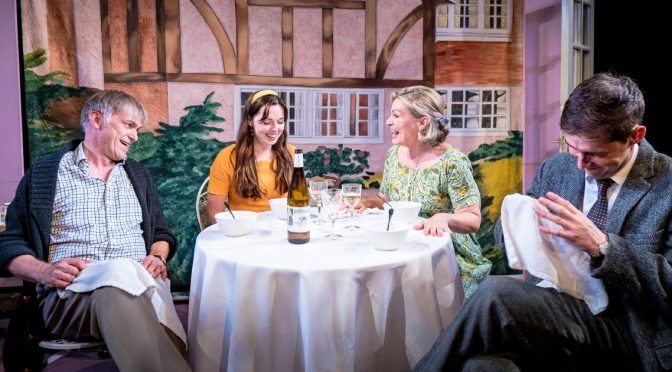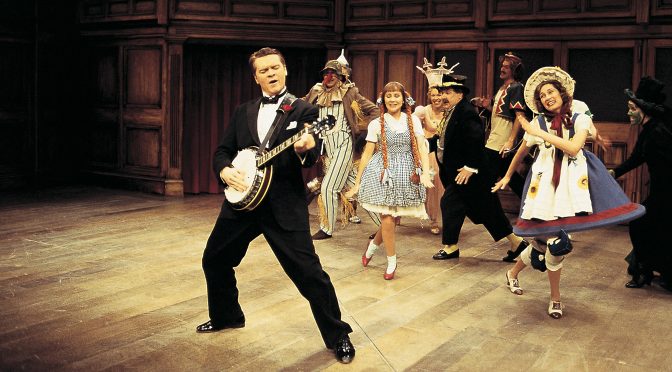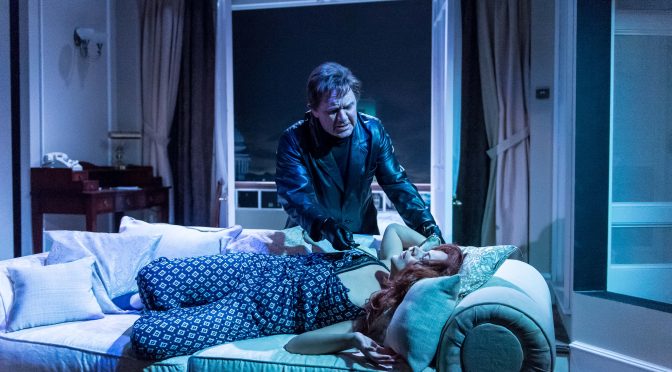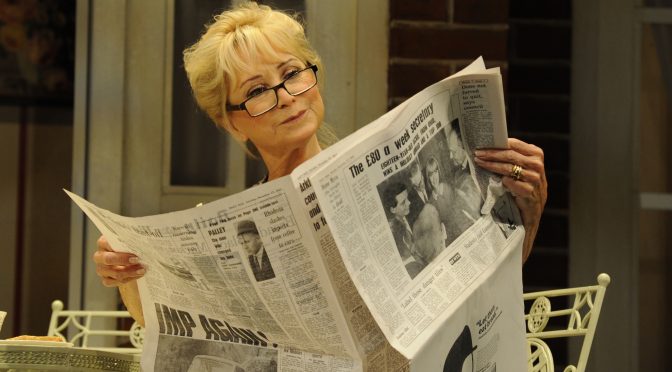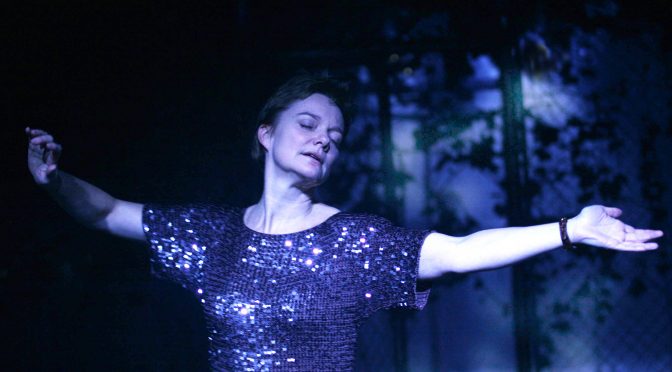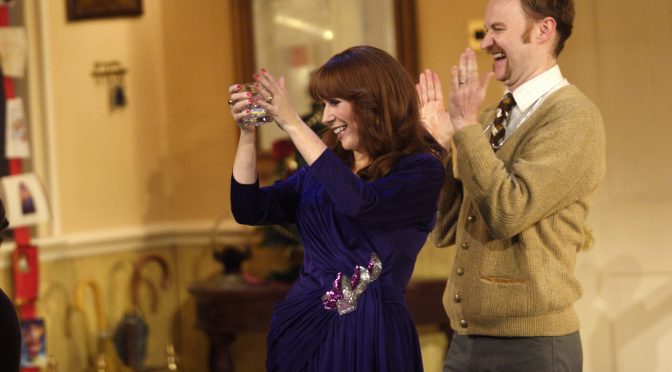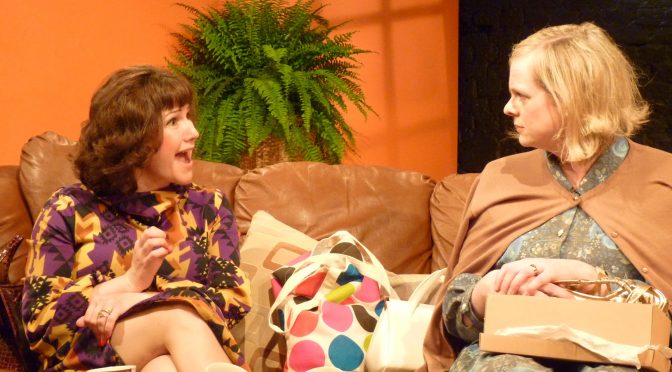Director Robin Herford’s revival of Alan Ayckbourn’s classic is a well-crafted and high-quality affair. Much like the play itself.
Young Greg and Ginny, who we meet first, become rapidly engaged despite his suspicions and her worries. Taking the roles, Christopher Bonwell and Lianne Harvey convince and intrigue as young things in love… if warily so. Random gifts and phone calls cause confusion.
An older married couple, Philip and Sheila, come next. The relationship is equally well observed, with long-standing power struggles exquisitely performed by Rachel Fielding and James Simmons. Philip’s affair with Ginny is the cause of her anxiety and a dilemma: she wants it over with and he doesn’t.
When the couples meet, confusion ensues and the comedy really gets going.
A slow start, then (and a pace Herford doesn’t rush), but one that builds to a farce that is original and quietly subversive. As an early Ayckbourn, from 1967, some social mores need to be recalled: confusion about Ginny’s illegitimacy isn’t going to get many laughs nowadays. But it’s still clear how bracing the satire is intended to be. And it should be noted that the two roles for women are excellent, their empathy for one another moving. Our sympathies firmly lie with the naive Greg and the long-suffering Sheila – a fact Cromwell and Fielding exploit well.
Ginny is complex and Philip a clear villain. With both roles, you might suggest Ayckbourn wants to question how funny a comedy about adultery should be? The dramatic irony, ridiculous coincidences and assumptions mount up. But these laughs have a queasy edge. After all, there are incestuous implications and an attempt at blackmail. There’s more to Relatively Speaking than meets the eye (or the genre), which makes the play fascinating as well as funny.
Until 9 October 2021

